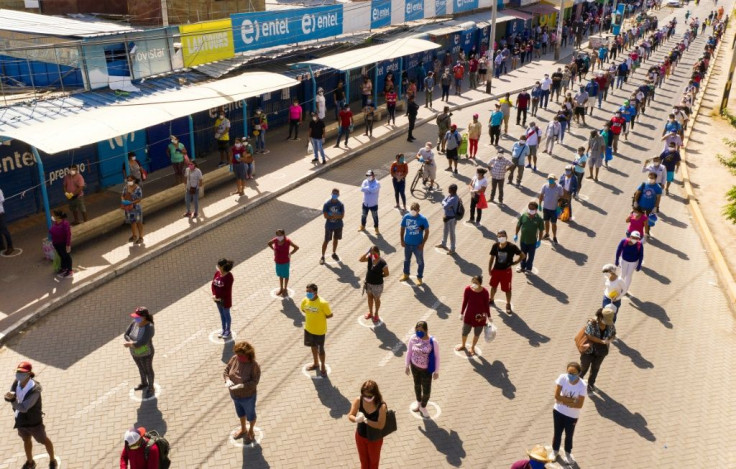Coronavirus US Update: Social Distancing Has Merely Stabilized COVID-19 Spread
KEY POINTS
- Varying degrees of social distancing measures imposed worldwide to prevent COVID-19 spread
- No significant evidence that it has resulted in a reduction in coronavirus cases reported daily
- Social distancing has merely stabilized the spread of the virus
Social distancing measures effectively decelerated the spread of the coronavirus on the whole but didn’t reduce the number of new infections on a daily basis, according to a recent statistical analysis conducted in all the 50 states of U.S. and Washington, D.C.
"All the social distancing was clearly helping, but it merely stabilized the process. When you're on a plateau and you start relaxing social distancing, you expect the number of new infections to start accelerating. The virus probably won't spread as fast as it did pre-intervention, but you expect it to accelerate nonetheless," MedicalXpress quoted Aaron Wagner, professor of electrical and computer engineering and first author of the study published in medRxiv.
It took approximately 12 days for the impact of social distancing measures to get apparent, because of the virus’ incubation period and the time taken to get the test results, according to the analysis conducted by the experts at Cornell and the University of Rochester.
Their model also considered the doubling rate- the amount of time it took in a particular state for the number of COVID-19 cases to double both before and after social distancing measures started.
They didn’t find any evidence that a particular state was in the contracting zone but rather found a surprising consistency across the nation.
“We find that social distancing is associated with a statistically-significant reduction in the doubling rate for all but three states. At the same time, we do not find significant evidence that social distancing has resulted in a reduction in the number of daily confirmed cases. Instead, social distancing has merely stabilized the spread of the disease,” concluded the researchers in the study.
This is one of the first efforts of the new Greater Data Science Cooperative Institute funded by the National Science Foundation. The institute has collaborated with experts at Cornell and the University of Rochester and focuses on using data science applications to solve problems in the field of medicine and health.
"Our institute primarily focuses on the mathematical foundations of data science, but we study those to see them have applications in the real world," MedicalXpress quoted David Matteson, Cornell associate professor of statistics and data science and principal investigator of the data science collaboration.

© Copyright IBTimes 2024. All rights reserved.






















